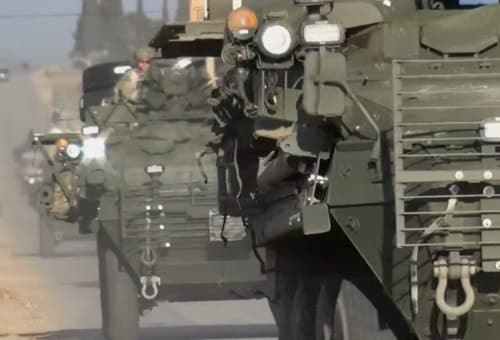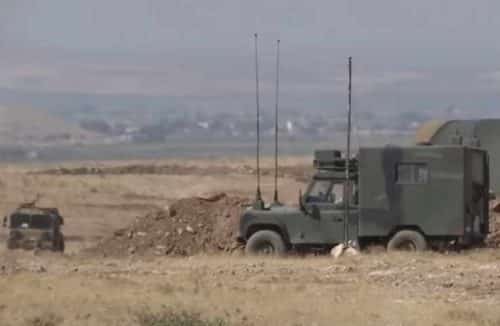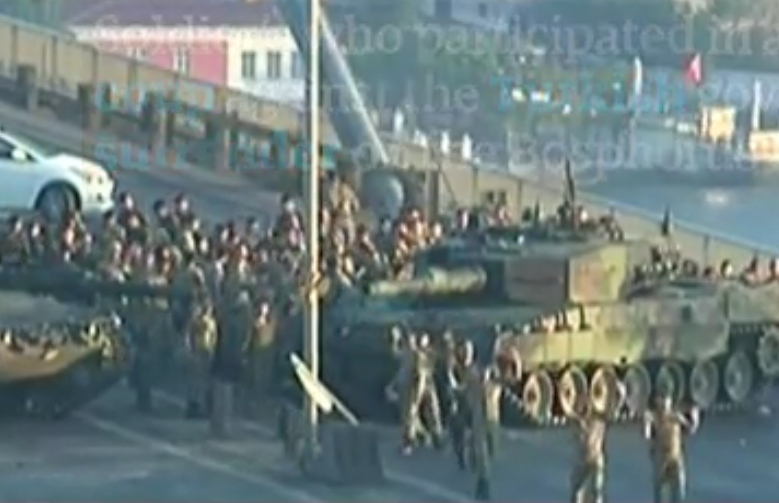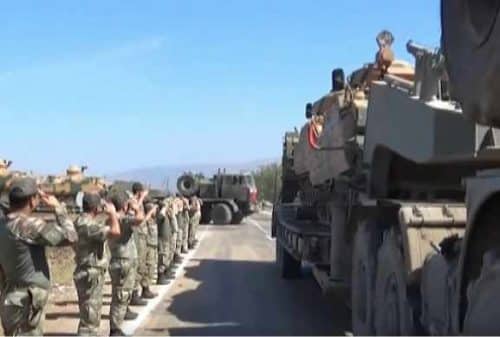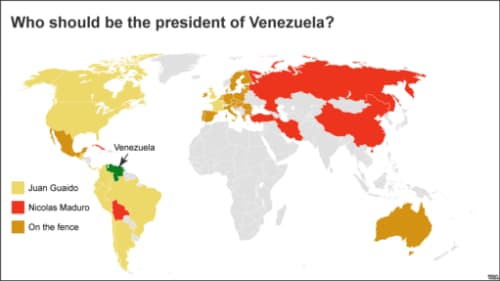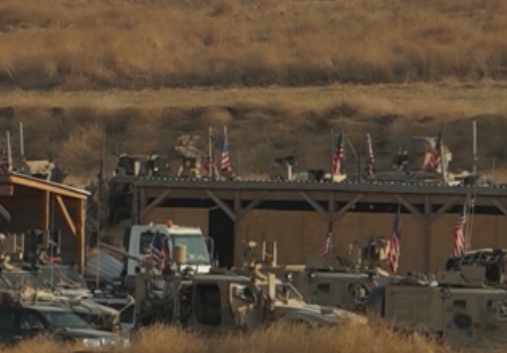US-led coalition evacuates injured troops
The death toll in an attack on U.S. and coalition troops in the northern Syrian town of Manbij is rising, with the bombing raising questions about what happens once U.S. forces pull out for good.
The Coalition for Operation Inherent Resolve confirmed that two U.S. service members, a Department of Defense civilian employee and a U.S. defense contractor were killed in Wednesday’s bombing, and another three service members were wounded.
Turkish President Recep Tayyip Erdogan said the bombing, claimed by the Islamic State terror group, has left 20 dead.
Unnamed U.S. officials had previously said four U.S. soldiers had been killed in the attack, with another three wounded.
“U.S. service members were killed during an explosion while conducting a routine patrol in Syria today. We are still gathering information and will share additional details at a later time,” a coalition spokesman said on Twitter.
Deadly blast
Witnesses at the scene said the explosion rocked a market area near the center of Manbij. They also said surveillance video from a nearby building showed a lone attacker rushing into a crowd near a restaurant where U.S. troops were known to meet with their coalition counterparts.
Doctors in Manbij told VOA two U.S. soldiers were killed instantly. Officials with the Syrian Democratic Forces said that the wounded were rushed to medical facilities in neighboring Iraq.
The British-based Syrian Observatory for Human Rights said the blast also killed at least nine civilians.
Islamic State claimed a Syrian fighter “set off with his explosive vest towards” the patrol.
[content id=”79272″]
Word of the attack quickly reached the White House.
“The President has been fully briefed and we will continue to monitor the ongoing situation in Syria,” Press Secretary Sarah Sanders said in a statement.
U.S.-Syria withdrawal
U.S. President Donald Trump called for the withdrawal of U.S. forces from Syria last month, saying IS had been defeated.
The Pentagon Friday confirmed it had begun pulling out some equipment from Syria as part of the pull-out, but that some 2,000 U.S. forces would remain in place until conditions on the ground allowed for them to leave.
Dozens of U.S. forces are based just outside of Manbij, which has been a flashpoint between U.S.-backed Kurdish militias and Turkey.
But in a speech Wednesday, U.S. Vice President Mike Pence made no mention of the attack, instead telling U.S. diplomats, “we’re bringing our troops home.”
“The caliphate has crumbled, and ISIS has been defeated,” Pence said, using an acronym for the terror group.
U.S. Senator Lindsey Graham, who has been critical at times of the administration’s decision-making in Syria, said he had visited the restaurant targeted in the suicide attack and urged the president to reconsider.
“My concern, by the statement by President Trump, is that you set in motion enthusiasm by the enemy we’re fighting,” Graham said during a hearing in Washington.
“I would hope the president would look long and hard at where he’s headed in Syria,” Graham added. “I know people are frustrated, but we’re never going to be safe here unless we’re willing to help people over there who stand up against this radical ideology.”
Islamic State fight
Critics of Trump’s decision to pull U.S. forces from Syria have said that while the Islamic State’s self-declared caliphate had collapsed, IS itself was transforming into a capable insurgent force.
As of August, defense intelligence estimated IS still had between 13,000 and 14,500 fighters in Syria, the majority of which were operating in areas not under the control of U.S. partner forces.
A United Nations report issued at about the same time also warned IS fighters were not breaking rank.
“The collective discipline of ISIL is intact,” the report said, using another of the terror group’s acronyms.
“Today’s attack suggests ISIS maintains the capacity to pursue opportunistic attacks and present itself as an enduring security challenge in Syria,” said Nicholas Glavin, formerly a researcher at the U.S. Naval War College’s Center on Irregular Warfare and Armed Groups.
“While it may not hold territory, it certainly has battle-hardened fighters and facilitators who have blended back into the local population,” he said.
Glavin, now studying at The Fletcher School of Law and Diplomacy at Tufts University, said it is also significant that the attack was carried out in Manbij, a town that has been regarded as somewhat of a success story since it was liberated from IS by U.S.-backed Kurdish forces in 2016.
“It raises the question of how Manbij would fare absent the current U.S. force posture, given recent proposals for Turkey to establish a safe-zone in the region,” he said.
But Manbij has also been seen as a flashpoint between the Kurds and U.S. ally Turkey, which views the main Kurdish militia, the YPG, as a terrorist organization with links to Kurds in Turkey.
Russia, which has also been trying to broker a deal with Turkey, said earlier this month its military police had started doing patrols of their own in areas around Manbij.
Carla Babb at the Pentagon and VOA Kurdish reporter Mahmoud Bali in Manbij contributed to this report
Source: VOA

